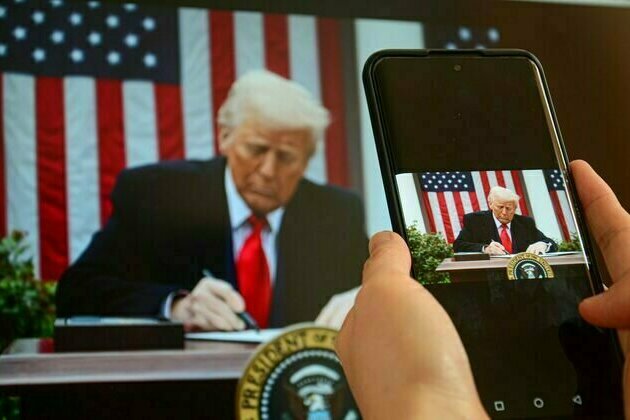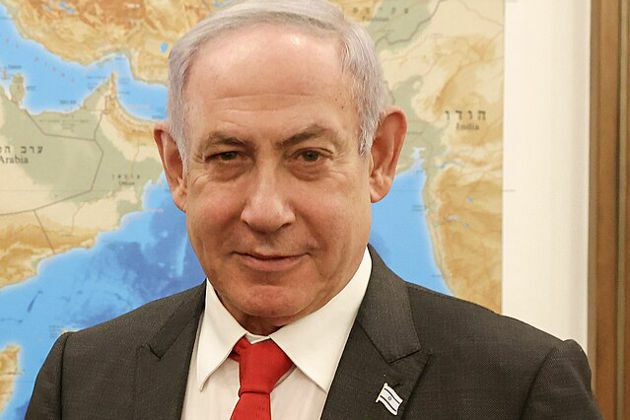How Trump plays with new media says a lot about him - as it did with FDR, Kennedy and Obama
The Conversation
01 Jul 2025, 13:10 GMT+10

There is a strange and worrying parallel between the breakneck speed at which Donald Trump has operated in the first few months of his presidency and the ever-accelerating pace at which information moves on social media platforms. Where in his first term he used Twitter, now, the 47th US president is using his own platform, TruthSocial, to announce changes of direction that are sometimes so fundamental that they change decades of US policy.
Social media has become a key tool of governing for Trump's administration. He uses it both to make announcements and to drum up support for those announcements. His social media posts can move the markets and make or break careers. They can even, it seems, stop wars.
So when he used TruthSocial to announce a ceasefire between Israel and Iran on June 23, giving the two countries a deadline to stop firing missiles, it appears that neither of the antagonists were fully aware of the situation, given they carried on attacking each other. So an all-caps message followed: "ISRAEL. DO NOT DROP THOSE BOMBS," he posted. "BRING YOUR PILOTS HOME, NOW!" - adding, just in case anyone had any doubt he was serious: "DONALD J. TRUMP, PRESIDENT OF THE UNITED STATES."
Trump's use of his TruthSocial platform began as he sought to re-establish himself from the political wilderness after the insurrection of January 6 2021. It has now become a tool of his extreme power and his willingness to use (and abuse) it - globally as well as domestically.
Get your news from actual experts, straight to your inbox. Sign up to our daily newsletter to receive all The Conversation UK's latest coverage of news and research, from politics and business to the arts and sciences.
He's the latest in a string of US presidents known for their adroit use of whichever is the medium most guaranteed to connect with the greatest number of people. From Theodore "Teddy" Roosevelt's adept cultivation of print journalists in the early 20th century through Franklin D. Roosevelt's comforting use of radio as it gained popularity and John F. Kennedy's mastery of the rising medium of television, presidents have expanded their reach and influence through adept use of media.
FDR's "fireside chats", broadcast on the radio throughout the US in the 1930s, reached an estimated 80% of the population, showing he understood the key media principle of reach. Roosevelt would address his listeners as "my friends" and Americans came to understand them as seemingly intimate conversations with their president.
FDR dominated the airwaves at a time when many Americans hardly understood the important role that the federal government played in their own lives - and millions of households were only just getting mains electricity (thanks to the Rural Electrification Act of 1936). But radios were becoming a common mass medium and FDR perfectly understood how to use it. If you listen to the fireside chats, FDR may sound patrician - and at times formal - but his tone is also friendly, thoughtful and reassuring.
In Germany at around the same time, Adolf Hitler's massive stadium speeches were very effective for people who were in the stadium and being lifted by the intensity of the crowd and all the carefully thought out visual cues. But when broadcast on radio, Hitler had nothing like Roosevelt's ability to connect with people on a personal level.
Roosevelt was hardly the first leader - or even the first US president - to speak on the radio. But he was the first to master the medium. He figured out how to use its potential to deliver a key implicit message: that his government should and did take on a central role in people's lives.
Equally, John F. Kennedy can be said to have "discovered" political television. Not just as a medium for political campaigns, debates and speeches - but also for putting across to a mass audience his role as the embodiment of American decency, beauty and masculinity: JFK's White House as Camelot.
Both Roosevelt and Kennedy were in several ways physically disabled and lived with chronic illness, yet through the "new medium" of their time were able to project an image of quintessentially American strength and trustworthiness. In part this was their own doing - but it's also a testament to the power of the media they used for their time.
These possibilities of a medium used to its best advantage - for example, to be heard around the US, but still to project a sense of intimacy - have become known as the "affordances" of a medium. The medium afforded Roosevelt space to be authentic without showing his disability. Kennedy appeared young, fit and handsome - even when dependent on painkillers.
When a new medium is introduced, people start to play around with its affordances - and this applies to politicians too. Political leaders who develop a special aptitude for using the new medium to emphasise their unique style can become particularly successful, as has Donald Trump with his use of social media.
The US president rose to power helped by his adept use of many of Twitter's attributes - the imposed brevity of his messages, the ease of retweeting, the tendency for other users to "pile on" (and the user anonymity, which tends to encourage pile-ons) to polarise American public debate.
Trump was forced off Twitter after the Capitol Hill insurrection of January 6 2021. So he came back with his own platform, TruthSocial, where he can also make the rules. And now he uses the platform to make foreign policy, trumpeting his positions (which can change with bewildering speed) on TruthSocial well before they can be announced by the White House press team, which often has to scramble to catch up.
When Canadian communication theorist Marshall McLuhan penned his famous phrase: "The medium is the message" in his groundbreaking 1964 study, Understanding Media: The Extensions of Man, he meant to say that media form and content are not as distinct from one another as one might think and that the form of a medium of communication can shape society as much as its content. In Donald Trump's use of social media, we are seeing this idea at work.
 Share
Share
 Tweet
Tweet
 Share
Share
 Flip
Flip
 Email
Email
Watch latest videos
Subscribe and Follow
Get a daily dose of Canada Standard news through our daily email, its complimentary and keeps you fully up to date with world and business news as well.
News RELEASES
Publish news of your business, community or sports group, personnel appointments, major event and more by submitting a news release to Canada Standard.
More InformationInternational
SectionBeijing crowds cheer AI-powered robots over real soccer players
BEIJING, China: China's national soccer team may struggle to stir excitement, but its humanoid robots are drawing cheers — and not...
COVID-19 source still unknown, says WHO panel
]LONDON, U.K.: A World Health Organization (WHO) expert group investigating the origins of the COVID-19 pandemic released its final...
Fox faces $787 million lawsuit from Newsom over Trump phone call
DOVER, Delaware: California Governor Gavin Newsom has taken legal aim at Fox News, accusing the network of deliberately distorting...
DeepSeek faces app store ban in Germany over data transfer fears
FRANKFURT, Germany: Germany has become the latest country to challenge Chinese AI firm DeepSeek over its data practices, as pressure...
Canadian option offered to Harvard graduates facing US visa issues
TORONTO, Canada: Harvard University and the University of Toronto have created a backup plan to ensure Harvard graduate students continue...
Israel should act fast on new peace deals, Netanyahu says
JERUSALEM, Israel: Israeli Prime Minister Benjamin Netanyahu says that Israel's success in the war with Iran could open the door to...
Sports
SectionDelhi Premier League adds two new franchises for Season 2; Over 10 IPL players to feature in DPL Auctions on July 6-7
New Delhi [India], July 1 (ANI): The Delhi & District Cricket Association (DDCA) on Tuesday announced the addition of two new men's...
(SP)U.S.-ORLANDO-FOOTBALL-FIFA CLUB WORLD CUP-MANCHESTER CITY VS AL HILAL
(250701) -- ORLANDO, July 1, 2025 (Xinhua) -- Ali Lajami (R) of Al Hilal saves the ball during the round of 16 match between Manchester...
Saudi's Al Hilal knock Man City out of Club World Cup
ORLANDO, 1st July, 2025 (WAM) -- Saudi Arabian side Al Hilal sent English giants Manchester City crashing out of the Club World Cup...
Crispin Chettri targets improved first-half performances as race to AFC Women's Asian Cup heats up
Chiang Mai [Thailand], July 1 (ANI): Group B of the AFC Women's Asian Cup 2026 Qualifiers has almost turned into a two-horse race after...
(SP)U.S.-CHARLOTTE-FOOTBALL-FIFA CLUB WORLD CUP-FC INTER MILAN VS FLUMINENSE FC
(250701) -- CHARLOTTE, July 1, 2025 (Xinhua) -- Thiago Silva (top) of Fluminense FC celebrates for the goal of teammate Hercules during...
Don't pay too much attention to these one-two rating points: Praggnanandhaa after becoming India's highest-ranked chess player
By Shaurya Dutt Zagreb [Croatia], July 1 (ANI): Indian chess grandmaster Rameshbabu Praggnanandhaa has become the country's highest-ranked...













